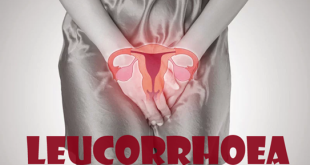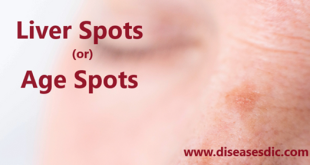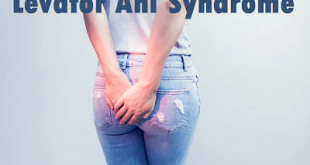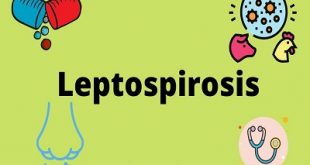Definition
Listeriosis is an infection caused by a gram stain-positive motile bacterium named Listeria monocytogenes. The foodborne illness produces fever, muscle aches, and, in many people, diarrhea. Severe infections can cause headaches, meningitis, convulsions, and death. Most healthy people exposed to the bacteria have minor or no symptoms, but a few people, especially the elderly, pregnant females and their fetus, newborns, and anyone with a compromised immune system are especially susceptible to these organisms. Listeria bacteria are widespread throughout the world and are often associated with farm animals that may show no signs of infection. Research shows that many animals are uninfected carriers, and they suggest that some humans carry these organisms as part of their bowel flora. Except for pregnant women and their fetus or newborn, there is no direct transfer of Listeria from human to human.
Where is listeria found?
Listeria bacteria have been found in a range of chilled “ready-to-eat” foods, including:
- Pre-packed sandwiches
- Pate
- Butter
- Soft cheeses – such as Brie or Camembert, or others with a similar rind
- Soft blue cheese
- Cooked sliced meats
- Smoked salmon
The bacteria may also be passed on through contact with the stools of infected animals or human carriers.
Epidemiology
The estimated annual incidence of listeriosis is approximately 4 cases per million population in Canada. Surveillance of listeria infections in Europe reported an incidence varying between 0.3 (Greece) and 7.5 (Sweden) cases per year. After years of decreasing incidence, recent trends throughout Europe, in particular France and Scandinavia, show an increasing incidence.This trend is accounted for by increased cases in the population older than 60 years. Neonatal and maternal incidence remains stable.
Risk factors
Listeriosis is a disease that rarely affects healthy individuals. However, several risk factors do exist for acquiring and developing listeriosis.
- Eating or drinking food products contaminated with Listeria monocytogenes is the greatest risk factor for developing listeriosis.
- Certain patient populations are at greater risk for developing listeriosis:
-
- New-borns
- Elderly
- Pregnant women
- Individuals with a poorly functioning immune system (for example, patients with AIDS, cancer, diabetes, chronic kidney disease, alcoholics, or those taking immunosuppressive medications)
Causes of Listeriosis
L. monocytogene causes listeria infection which is found in soil and water.
- Vegetables can become contaminated from the soil or from manure used as fertilizer.
- Animals can carry the bacteria and can contaminate meats and dairy products.
- Processed foods, such as soft cheeses and cold cuts, can be contaminated after processing.
- Unpasteurized (raw) milk or foods made from unpasteurized milk can be contaminated.
Listeria monocytogenes
Successive steps of human listeriosis
Symptoms of Listeriosis
Listeriosis can cause a variety of symptoms, depending on the person and the part of the body affected. Listeria can cause fever and diarrhea similar to other foodborne germs, but this type of Listeria infection is rarely diagnosed. Symptoms in people with invasive listeriosis, meaning the bacteria has spread beyond the gut, depend on whether the person is pregnant. .
Pregnant women: Pregnant women typically experience only fever and other flu-like symptoms, such as fatigue and muscle aches. However, infections during pregnancy can lead to miscarriage, stillbirth, premature delivery, or life-threatening infection of the newborn.
People other than pregnant women: Symptoms can include headache, stiff neck, confusion, loss of balance, and convulsions in addition to fever and muscle aches.
People with invasive listeriosis usually report symptoms starting 1 to 4 weeks after eating food contaminated with Listeria; some people have reported symptoms starting as late as 70 days after exposure or as early as the same day of exposure.
Complications of Listeriosis
Most listeria infections are so mild they may go unnoticed. However, in some cases, a listeria infection can lead to life-threatening complications — including:
- A generalized blood infection (septicaemia)
- Inflammation of the membranes and fluid surrounding the brain (meningitis)
Complications of a listeria infection may be most severe for an unborn baby. Early in pregnancy, a listeria infection may lead to miscarriage. Later in pregnancy, a listeria infection may lead to stillbirth, premature birth or a potentially fatal infection in the baby after birth even if the mother becomes only mildly ill. Infants who survive a listeria infection may experience long-term neurological damage and delayed development. Adults over 60 can also be seriously affected by a listeria infection, and death rates may be as high as 10 to 20 percent for this age group.
Diagnosis and test
Listeriosis is diagnosed based on a medical history and physical exam. Your doctor will ask you questions about your symptoms, foods you have recently eaten, and your work and home environments. A blood test or spinal fluid test may be done to confirm the diagnosis.
Treatment and medications
Treatment of listeria infection varies, depending on the severity of the signs and symptoms. Most people with mild symptoms require no treatment. More-serious infections can be treated with antibiotics.
During pregnancy, prompt antibiotic treatment may help keep the infection from affecting the baby. Newborns who have a listeria infection may receive a combination of antibiotics.
Prevention of Listeriosis
To prevent listeriosis:
- Avoid high risk foods (as described below)
- Thoroughly cook raw food from animal sources, such as beef, lamb, pork, or poultry
- Wash raw vegetables and fruit thoroughly before eating
- Keep raw meat separate from vegetables, cooked foods, and ready- to-eat foods (that is, do not allow the blood from raw meat to come into contact with other food)
- Use separate cutting boards for raw meat and foods that are ready to eat (for example, cooked foods and salads)
- Wash your hands before and after preparing food
- Wash knives and cutting boards after handling uncooked foods
- Wash your hands after handling animals
- Perishable foods should be stored in a cold (less than 5 degrees Celsius) refrigerator and be washed and eaten as soon as possible.
People at increased risk of listeriosis should not eat:
- Pre-packed cold salads including coleslaw and fresh fruit salad
- Pre-cut fruit
- Pre-cooked cold chicken
- Cold delecatessen meats
- Pate
- Raw seafood
- Smoked seafood (for example, smoked salmon)
- Unpasteurised milk or milk products
- Soft cheeses such as brie, camembert, ricotta, or blue-vein (unless cooked and eaten whilst hot)
- Sprouted seeds and raw mushrooms
 Diseases Treatments Dictionary This is complete solution to read all diseases treatments Which covers Prevention, Causes, Symptoms, Medical Terms, Drugs, Prescription, Natural Remedies with cures and Treatments. Most of the common diseases were listed in names, split with categories.
Diseases Treatments Dictionary This is complete solution to read all diseases treatments Which covers Prevention, Causes, Symptoms, Medical Terms, Drugs, Prescription, Natural Remedies with cures and Treatments. Most of the common diseases were listed in names, split with categories.







